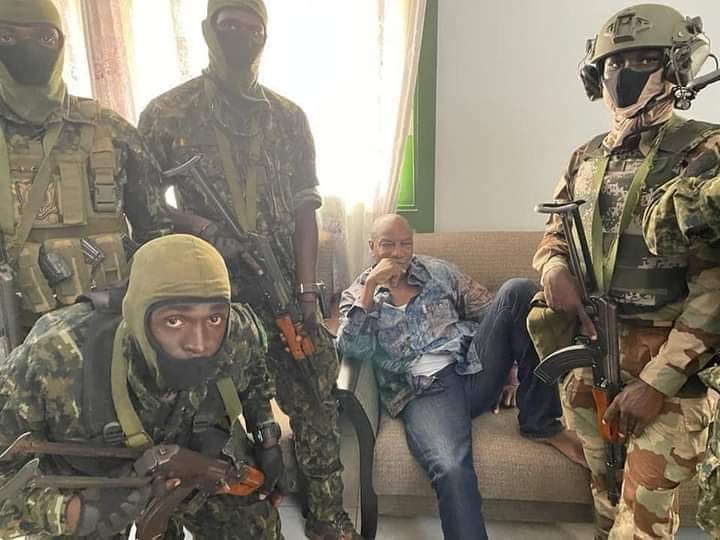When Guinean President Alpha Condé changed the constitution last year to allow him seek a third term in office, many pundits and human rights groups believed Guinea was heading for trouble, as the move plunged the West African nation into civil unrest with 30 persons reportedly killed in anti-Condé riot. Guinea, like Sierra Leone and Liberia, has a bitter history of military coups and civil wars.
So it came as little surprise to West Africa watchers when reports broke out on Sunday that soldiers under the command of Colonel Mamady Doumbouya had overthrown the Alpha Condé government, suspended the Constitution and dissolved the National Assembly.
Addressing the media few hours after the coup, Col. Doumbouya ordered all borders closed, imposed a curfew and canceled inbound and outgoing flights.
In the wake of the Guinea coup development and the uncertainly that hangs over the troubled West African nation, the Economic Community of West African States (ECOWAS) last evening unreservedly condemned the coup, demanding respect for the physical safety of the President of the Republic, Professor Alpha Condé, and his immediate and unconditional release, as well as that of all arrested persons.
ECOWAS also demanded a return to constitutional order on pain of sanctions, reaffirming its objection to any unconstitutional political change.
“We ask the Guinean defense and security forces to remain in a constitutional posture, and express our solidarity with the Guinean people and their Government,” stated the ECOWAS in a release issued under the signature of its Chairman, Ghanaian president Nana Addo Dankwa Akufo-Addo.
While we at Punch FM/TV Online News Service also condemn the military takeover in Guinea, it is equally important to caution our African leaders to stop tampering with the Constitution just to prolong their stay in power.
It would be redundant to mention that 83-year-old Alpha Condé provoked the situation in Guinea when he changed the Constitution to allow him run for a third term. But what is equally interesting is that Ecowas and the African Union (AU) stood by and looked the other way, knowing fully well that Condé’s action would have provoked a civil uprising or a coup d’état. Now that the chicken has come home to roost, our regional and continental bodies want to bark when their bark is even less sinister than their toothless grimace.
The Guinea situation obviously places serious security and economic strains on its closest neighbor Liberia, as both countries not only share common borders, but have closer socioeconomic and cultural ties. If conditions deteriorate in Guinea, citizens from that side will pour into Liberia through our very porous borders. All of this happening during a nasty global pandemic might auger disaster for the two nations.


